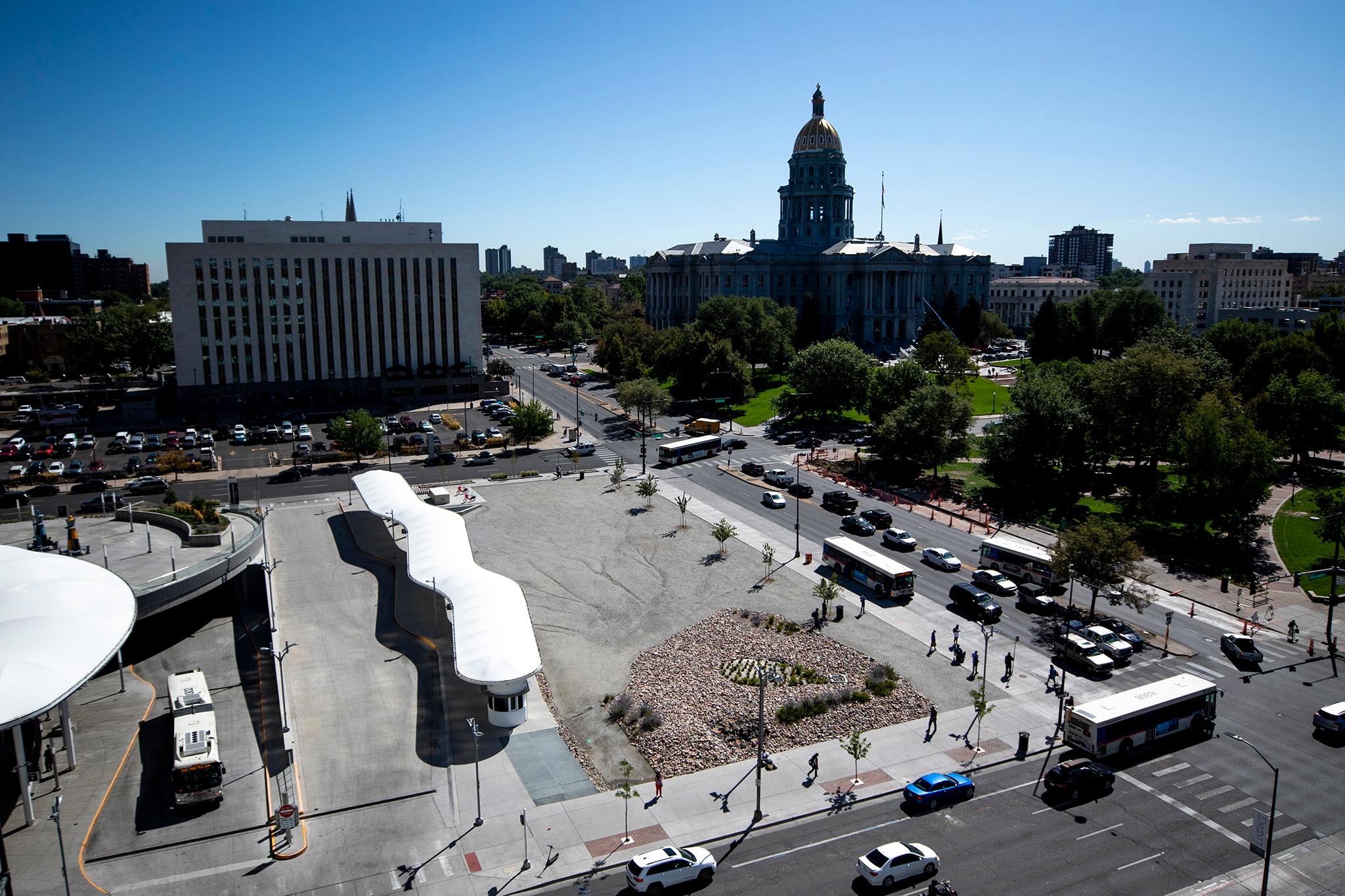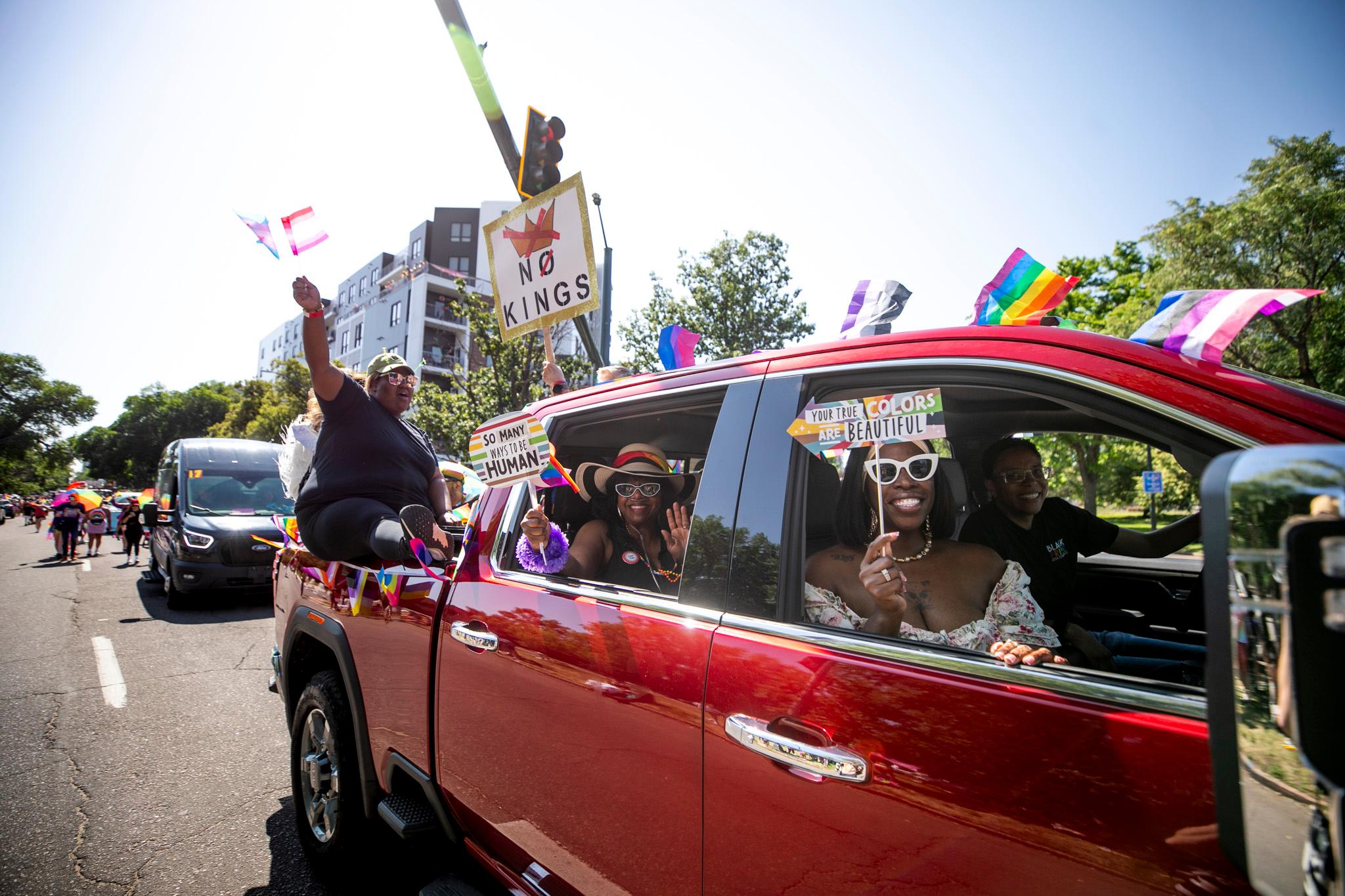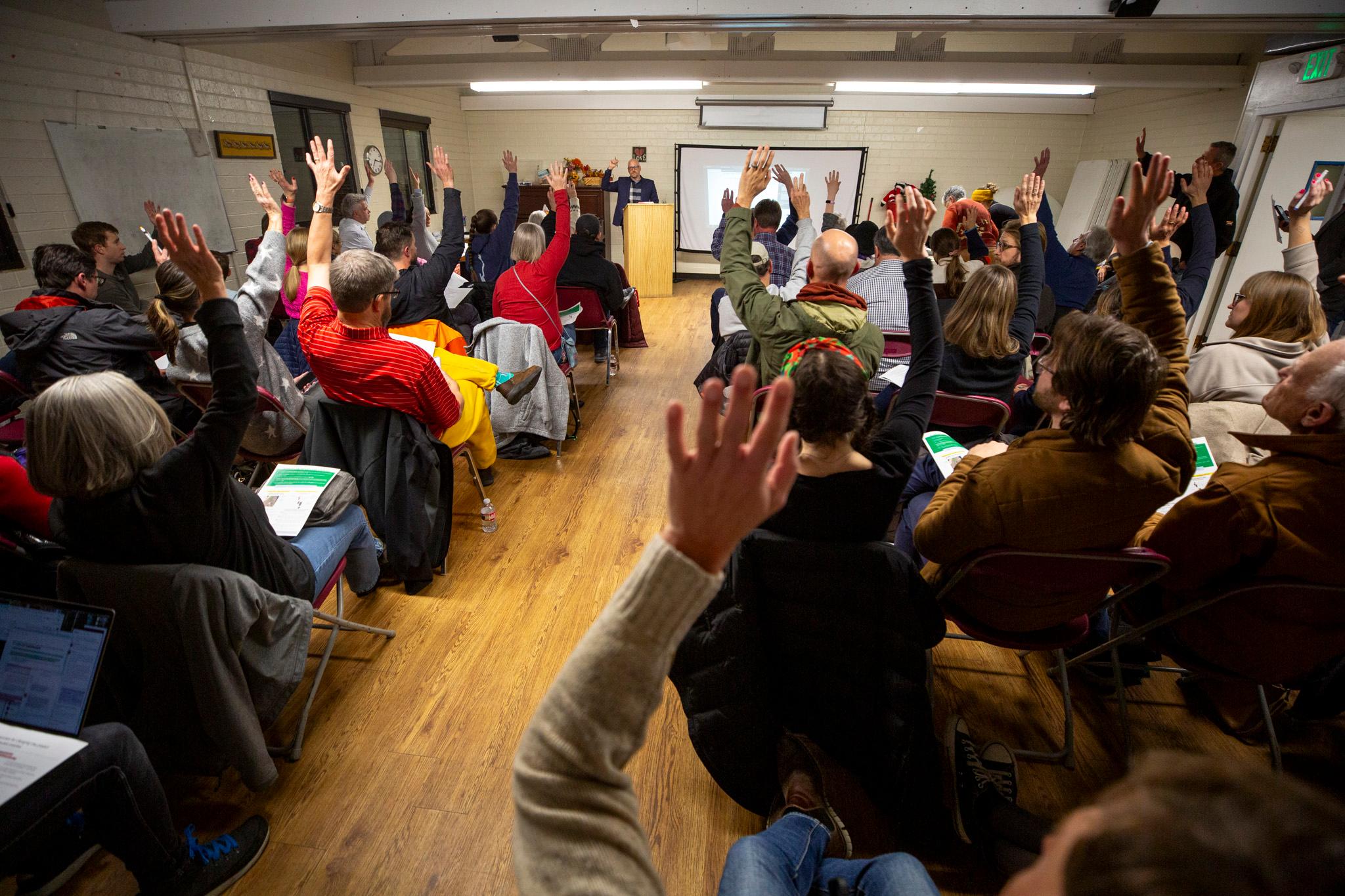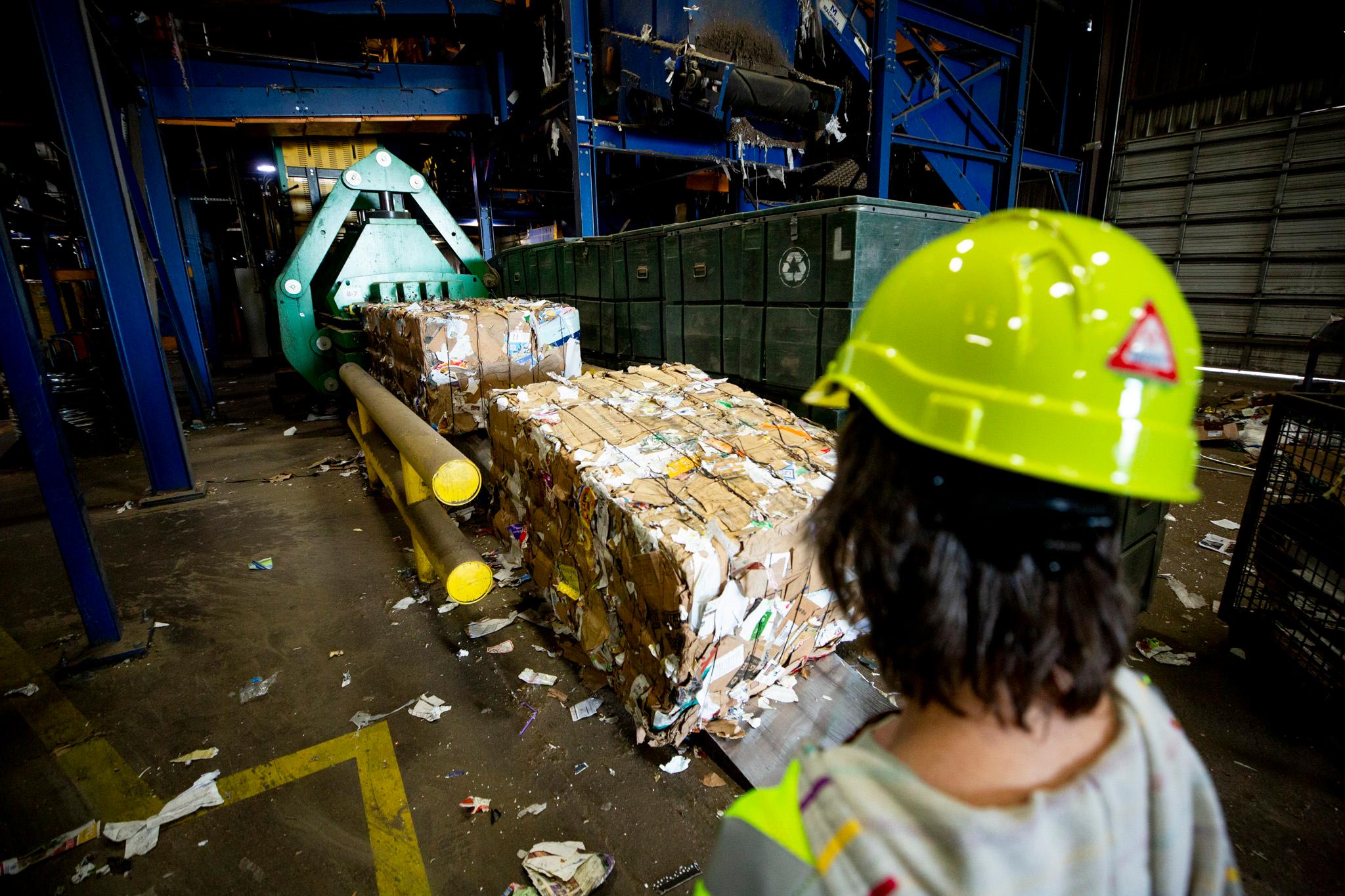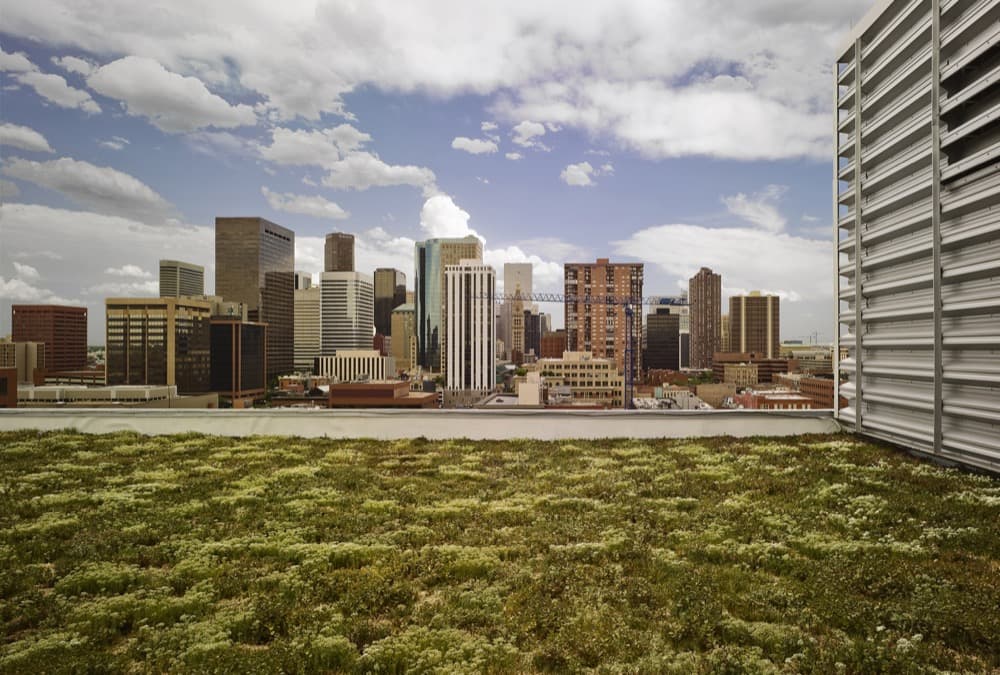
Would you like to see more of this? What about making developers build more of this?
A small group of environmentally minded Denver residents want to place an initiative on the November ballot to require buildings above a certain size to turn a portion of their rooftops into gardens.
It's modeled after a similar requirement in Toronto that's been in place since 2010 and has been expanded to include more building types.
Brandon Rietheimer, an organizer with the Denver Green Roof Initiative, said green roofs have been shown to reduce urban heat islands and improve stormwater management. They also insulate roofs and help buildings be more energy efficient.
Denver has the third most intense heat island effect of major American cities, with the average difference between urban and rural areas over a 10 year period running at almost 5 degrees. Only Las Vegas and Albuquerque are worse.
A self-employed maker and seller of lapel pins, Rietheimer said he also wants to show that citizens can make a difference on environmental issues at the local level.
The proposed initiative would require that buildings 25,000 square feet or larger devote a certain percentage of their rooftop to gardens and solar panels. The larger the building, the more of the roof would be set aside. Buildings between 25,000 and 49,999 square foot would have to set aside 20 percent of the rooftop, buildings 50,000 to 99,999 square feet would have to set aside 30 percent and so on up to 60 percent for buildings 200,000 square feet and larger.
The requirement would only apply to new construction and to major additions and roof replacements. Rietheimer said proponents aren't trying to put a major financial burden on the owners of existing buildings, which may not be built to support the extra weight on their roofs.
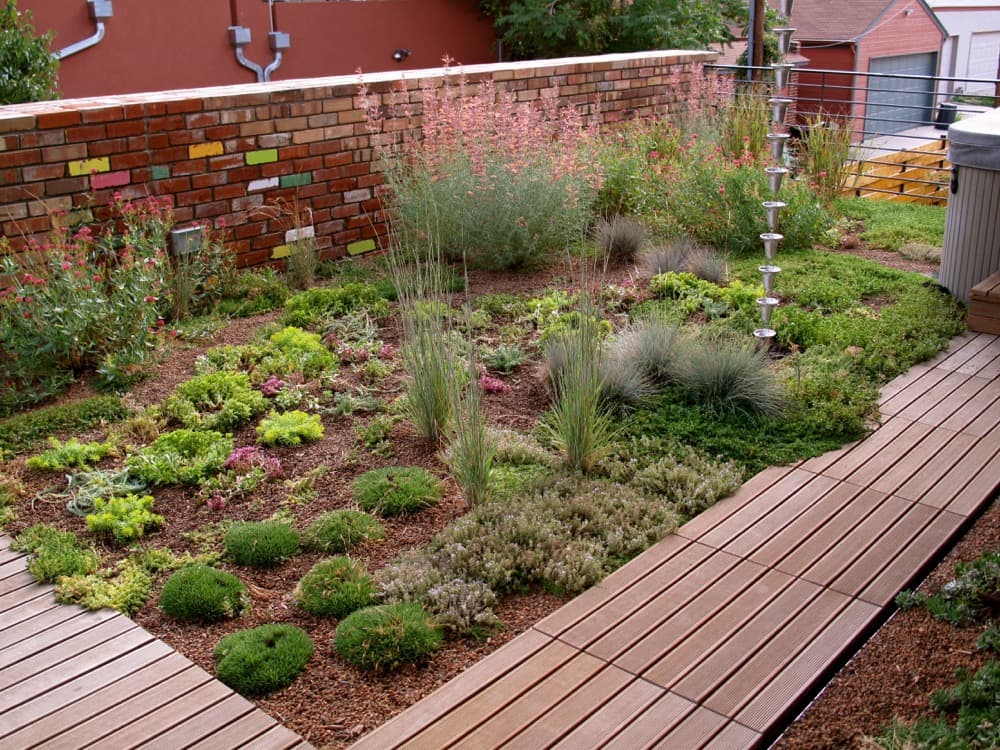
You can read the full text of the ordinance here. Organizers expect to circulate petitions this spring in hopes of getting on the ballot this year.
Rietheimer said he approached the city about doing an ordinance through the regular channels, but he quickly realized what he had in mind was more ambitious than what standard city policy could accommodate.
"They have a no-mandate policy," he said of the city. "They do not believe in mandates at all. Instead of trying to get them to change their minds, we decided to go the initiated route."
"We have these sustainability goals that we were supposed to reach by 2020, and we have done nothing to meet them," he added. "Buildings are huge energy users, and at the rate we're building in Denver, we can't go another route."
Denver Auditor Tim O'Brien recently criticized the sustainability office for not having a clear plan for reaching the city's carbon reduction goals.
In fact, Councilwoman At-large Robin Kniech said it may be time to look at mandates if new requirements that buildings report their energy use don't drive innovations in the market.
I don't know how far green roofs would go to get us to the city's sustainability goals, which call for the city to reduce carbon dioxide emissions below 1990 levels by 2020. I also expect builders to object to the increased cost of structural enhancements and maintenance.
I mean, sure, Toronto does it -- but they're Canadian.



